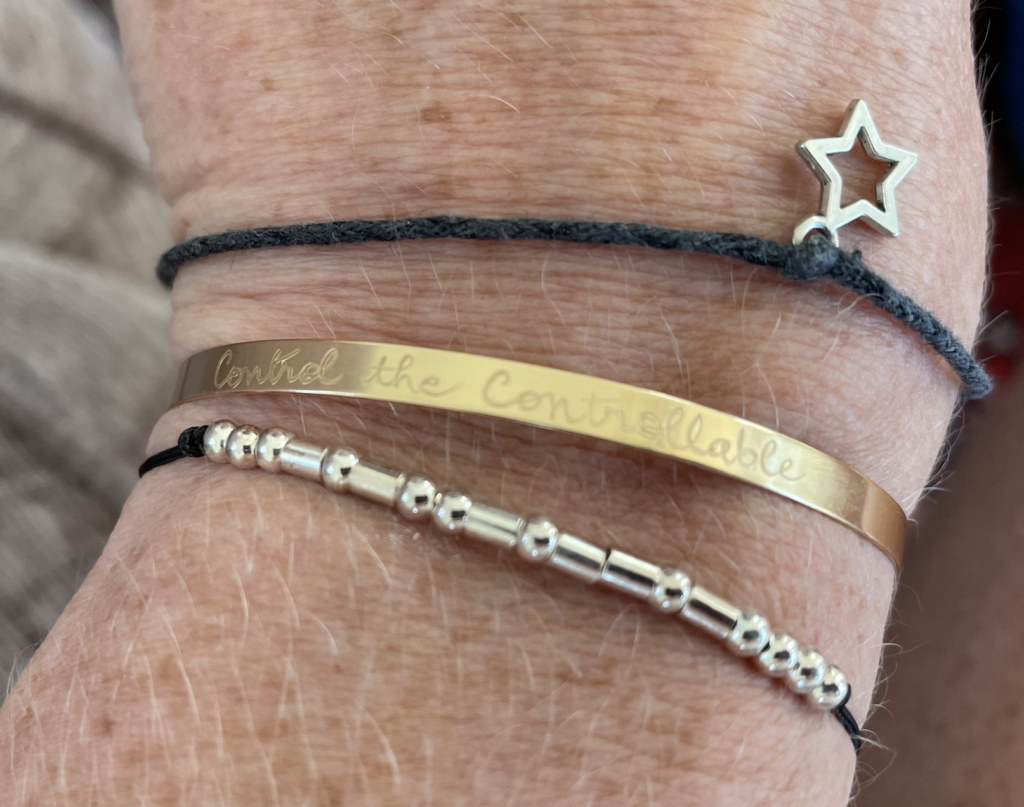A 7 minute read on how utilising resilience techniques such as mindset, perspective and redefining success can help you navigate a cancer diagnosis and treatment.
Blog Topic Inspiration
When I asked my network a couple of weeks ago for some blog topic inspiration, I was inundated with many fabulous ideas, (thank you), some of which I’d written about before, others of which were newer challenges having been brought into sharper focus more recently in the face of my breast cancer diagnosis. You might imagine that something like that causes you to stop immediately in your tracks.
And it does, trust me.
Positive Focus
Where I choose to put my focus, though, is in the observations, learnings and growth that I have experienced as a result, not necessarily about the “fight” or “strength” it takes to navigate. Those of you walking a similar path will doubtless already realise, unhelpful battle-language aside, you just do what you can to survive, quite literally.
Intention
So my intention here is to address some of the suggested themes in one go, the “Can do” Cancer guide, if you will. Further workplace resilience and mindset blogs will follow, including on finding your voice in the workplace, inspirational leadership and developing a growth mindset, so watch out for those coming soon.
“Can Do” Cancer: My 3 Strategies for navigating the stormy seas of cancer diagnosis and treatment
1. Mindset
Focus
A friend called recently to chat and lighten the load, and described me as having a naturally “buoyant” personality. I’ve been asked how I stay so positive of late.
I’ll let you into a secret. I have to work at it.
And if you are reading this thinking I’ve got a head start, being a more optimistic character by nature, and that you are a little more “glass half empty”, let me remind you that every glass is refillable.
Think about where you put your focus. And know that wherever that is, a positive or negative thought breeds and compounds another positive or negative thought.
So which way would you rather head, down or up??
Developing Optimism and Positivity
A great exercise to do to encourage a more optimistic outlook is Tony’ Robbins’ 10 day mental challenge. For 10 days, you are invited to become tuned in to your every thought, develop a keen awareness of your thought patterns and notice what shows up. If it is negative, stop yourself. Acknowledge it but bat it away. Don’t allow yourself to dwell on it. And if you do, start again from Day Zero. Keep going to develop a better awareness and see how you feel when you make it to Day 2, Day 3 and beyond!
Even if you only get yourself initially through Day 1, don’t berate yourself, but instead be amazed at what you observe about what you tolerate about what you tell yourself going forward.
Gratitude
Another technique which is helpful to encourage a positive mindset is daily gratitude journaling: writing down every day the 3 things you are most grateful for, whether first thing or last thing in the day. A beautiful sunrise or sunset; an appreciation of friends or family; role models or mentors who inspire you; motivation to take a half hour stroll or some other form of outdoor exercise, for example. By doing so, you cement your positive focus, not only in your brain but also by transferring it to the written page. A powerful anchor to stop any downward spiral.
It articulates the facts, the evidence, which expose the negative feelings for the lies they truly are. “Fact not feeling” all the way.
Pity Party with Finality
And for the times you just need a good cry, give yourself permission. Allow yourself to wallow. Cry it out.
But do so in a controlled time-frame. Be ready to snap yourself out of it. Every so often, I allow myself a pity party with finality, around 5 minutes, to ensure I don’t spiral the wrong way.
Staying Centred
And as for staying centred, I’ve said it many a time, both in client sessions and workshops/ webinars: “Control the Controllable.” Be accepting, and let go, of the things you can’t.
Knowing how much this mantra means to me and, more to the point, how powerful it is, my own coach, Lakeshia Ekeigwe, had it engraved on a bracelet for me to help me weather this particular storm. What a woman.
Accepting Help: No woman is an island
That brings me on to a final point here around mindset. You might not be used to leaning on others and opening yourself up to support. Many of you who know me will know how fiercely independent I am.
I am learning, when people offer help, to accept it. Permit others to feel useful in a scenario where otherwise they feel like impotent bystanders. It doesn’t diminish you as a person. It is life-affirming to see others step up to the plate in ways you could only ever imagine.
True friends shine through. You know who you are. It galvanises mindset like you’d never believe.
2. Perspective
Why me?
In the face of a cancer diagnosis, it is easy, particularly in the initial days, to catastrophise, imagine worst case scenarios and ask unhelpful questions like “Why me?”
Well, “Why not?”
It’s happening. That’s life.
What can you now do, and quickly, to regain a sense of perspective, proportion and calm?
Goals
As a coach, you’ll not be surprised to hear I am a big fan of goal-setting.
Having said that, I am learning that there is a time and a place for the long-term goals. In the immediate aftermath of a cancer diagnosis, it may be that those type of goals all feel a little far off, out of reach and hard to achieve or, frankly, even imagine. Thinking about making it to my youngest child’s graduation was a little too mind-blowing in the early days of stage 3 diagnosis and discussions about a prognosis that didn’t exactly fit in with that.
Short-Term Goals
This is when the smaller goals come into their own and can help get you through the day.
Those of you navigating the brutal rigours of chemotherapy will know, on certain days, the best goal to make might be as simple as get a shower, get dressed and come back to bed. And that’s ok. It’s all about perspective, being kind to yourself and taking things in bite-sized chunks.
Focusing on my goal of living to see primary kids graduate can wait.
In the meantime, I’ll run a bubble-bath. Result. Today’s goal, smashed.
3. Re-defining Success
Changed Priorities
With perspective comes an evaluation of what is important. Priorities shift. And with that comes the re-defining of success.
I’ve touched on this topic both in workshops/ webinars and my recent TED Talk [https://bit.ly/3skKAcQ], all pre-diagnosis, and I stand by what I’ve said about always approaching things authentically, even when it takes you down the road less travelled.
Values and Beliefs
The only additional point I would make, throwing cancer into the mix, is this: There is nothing like a life-changing diagnosis to bring into sharp focus what is important in life to you.
Expect those things to change. My goals and values as a fresh faced, single pupil barrister were a far cry from a 44 year old working mother of 3.
Be bold and fearless in a fresh assessment of your values and beliefs. The only constant in life is change.
Define Success your way
Success means different things to different people, so spend some time thinking now, post-diagnosis or mid-challenge, and with honesty, about your own definition of success, no one else’s.
Visualisation of Longer-Term Goals
It may take you back to those bigger, more longer term goals, which in time begin to feel more within reach.
Re-imagine the goal if needs be. Visualise it (the “what”) with precision, clarity and detail. Then return to those other mindset and resilience strategies with new-found determination to identify the motivation for the “how”.
Get a plan. Take action. Time waits for no one. As I now realise, more than ever.
Nikki Alderson Biography
Nikki Alderson, specialist coach, speaker and author, and former Criminal Barrister with 19 years’ experience:
- supports organisations, law firms and barristers’ Chambers to retain female talent; and
- empowers female lawyers to achieve career ambitions.
Nikki specialises in 3 areas:
- Women leadership transition and change;
- Enhanced career break returner support; and
- Workplace resilience, mental toughness, confidence and wellness.
She is the author of Amazon No.1 Bestseller Raising the Bar: empowering female lawyers through coaching, (https://amzn.to/3fodKQX) nominee for the Inspirational Women Awards, Champion of the Year Category and finalist in the 2020 Women in Law Awards, Legal Services Innovator of the Year and 2019 International Coaching Awards, International Coach of the Year Category.

